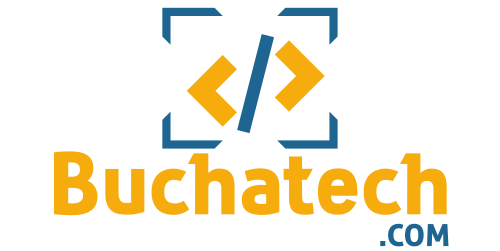Today I passed the Docker Certified Associate exam! In this post, I will share some details about the exam and the resources I used to study for it.
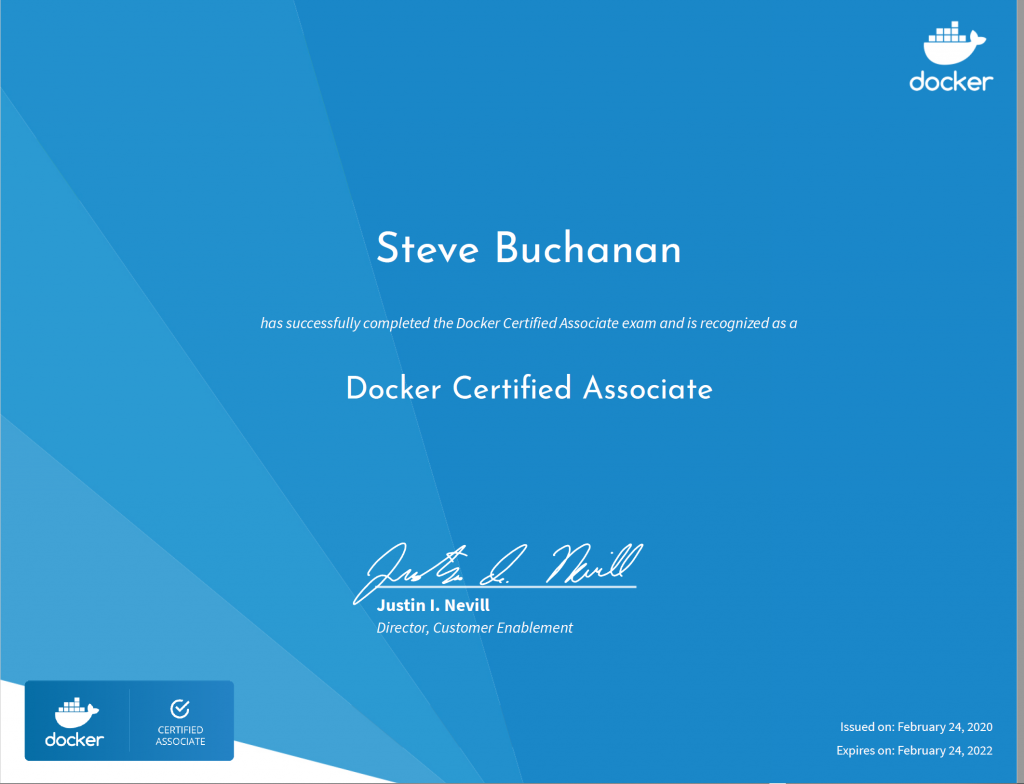
The certification is good for 2 years after passing the exam. It demonstrates that you have foundational real-world Docker skills. It is multiple choice with 55 questions, you have 1.5 hours to finish it and costs $195 USD. It is recommended that you have 6 to 12 months of hands-on experience with Docker before taking the exam. You can read about and sign up for the exam here: https://success.docker.com/certification.
I have had some folks ask me why I would waste my time taking the Docker exam. They say to focus on Kubernetes and Open Shift instead of Docker. Lets talk about why I chose to pursue the Docker certification. First off you have to run containers on those orchestration platforms mentioned before and chances are you will run Docker containers on them. Therefore before diving into an orchestration platform it is important to be knowledgable on containers. Also, I have seen many scenarios in the cloud where it makes sense to run containers directly on the cloud platform itself and again chances are those will be Docker containers. Docker is still a leader in the container space. There are several reports and articles that point to this. Here are some of the reports and articles backing this up:
Docker listed as the leader in the “Container Tools Used” section of the RightScale 2019 State of the Cloud Report” here:
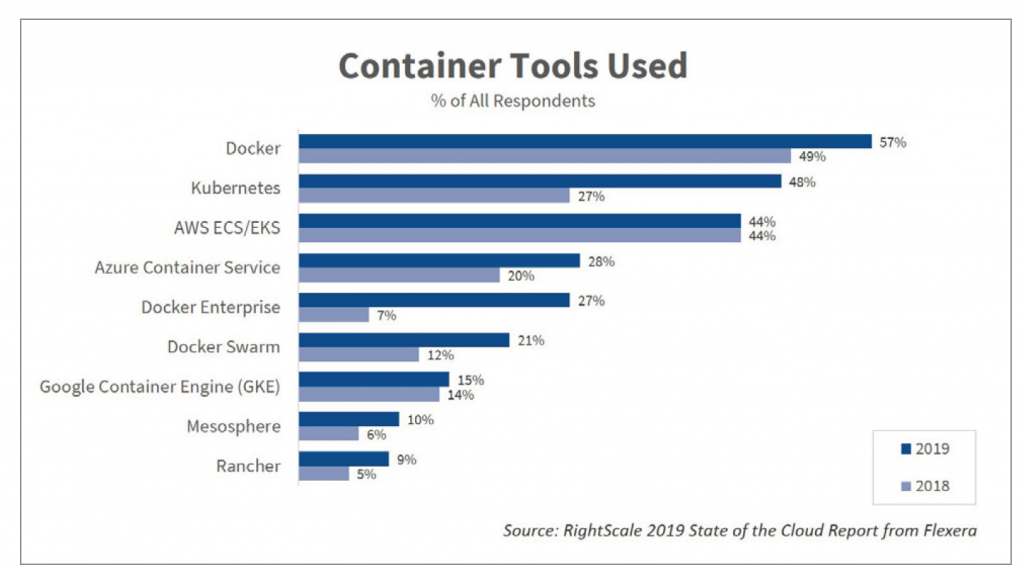
Docker is listed as #2 with 31.35% market share on Datanyze 2020 “Containerization Market Share Competitor Analysis Report” here:
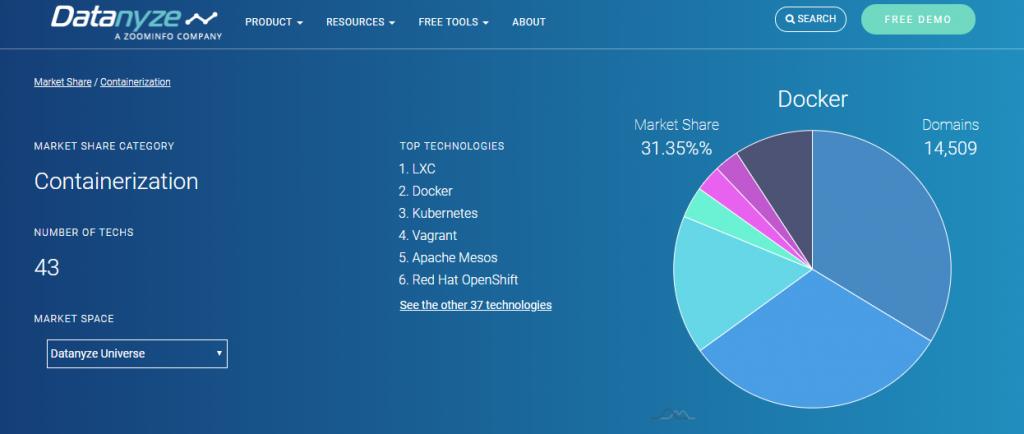
Source: https://www.datanyze.com/market-share/containerization–321
In “Sysdiags 2018 Docker usage report” they show “What container runtimes are in use?” showing Docker as the leader.
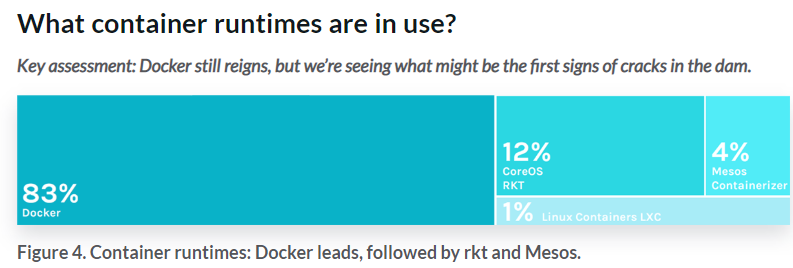
Source: https://sysdig.com/blog/2018-docker-usage-report/
And finally this article arguing that Docker is better than LXC here:
https://www.upguard.com/articles/docker-vs-lxc
I will call out that the Docker exam covers Swarm mode orchestration platform that is included with Docker. Swarm mode is a lot easier to learn and use compared to Kubernetes however, Kubernetes has won the orchestration platform war. It would be nice if Docker would revamp the exam reducing or removing Swarm and replace with some Kubernetes objectives. This would make more sense because there is a strong chance Swarm will not be used in the real world.
The Docker exam was not an easy exam and you definitely want to have some hands-on with Docker before taking it. There are a ton of resources out there that you can leverage beyond hands-on to assist in your study for this certification. There are many books available. You can do a quick search on Amazon and check the reviews for one that would be a good fit for you. I have read a couple of books on Docker and have co-authored a book on AKS with a chapter dedicated to Docker in it.
Here is the list of what I used to study.
Free Hands on Docker labs (This resource was huge for me. It gave me environments to use and scenarios for training with Docker and Docker Swarm mode.):
I attended a “Docker JumpStart Virtual Workshop” by Microsoft MVP Mike Pfeiffer and Microsoft MVP/Docker Captain Dan Wahlin (This workshop ocurred in the past but I beleive you can sign up and watch the recordings from the workshop.):
Free Docker Certification review questions here (This blogger has a bunch of review questions to help you get in the right mindset. They cover all the exam areas.):
Docker courses and learning checks on Pluralsight (The courses are great. I found the learning checks very useful becuase it was a good way to check my knowledge in all of the exam areas.):
Spent time working with Docker on some projects (self explanatory).
Overall the Docker certification is a good move for your career as an IT Pro, developer, if you work in DevOps, and with cloud. I definitely recommend getting this certification. If you decide to go after it good luck!
Stay tuned for more blog posts with insights on certifications in the future.
